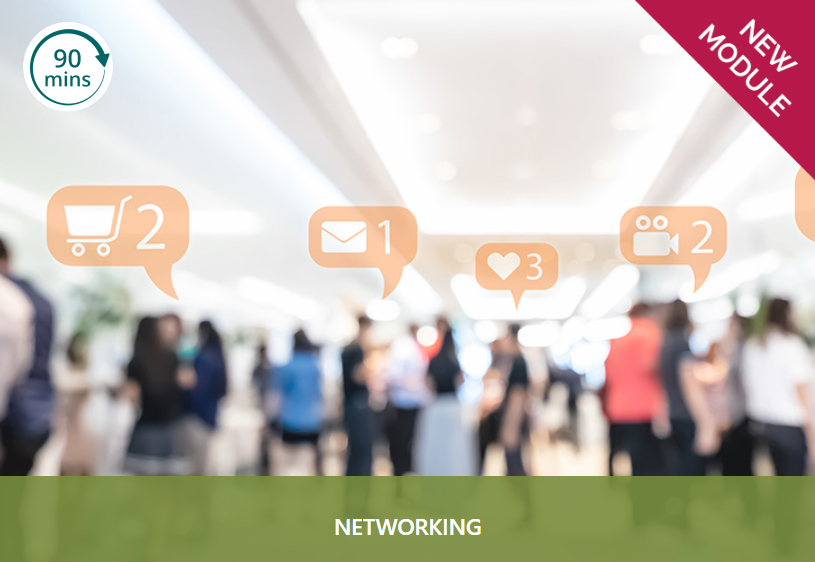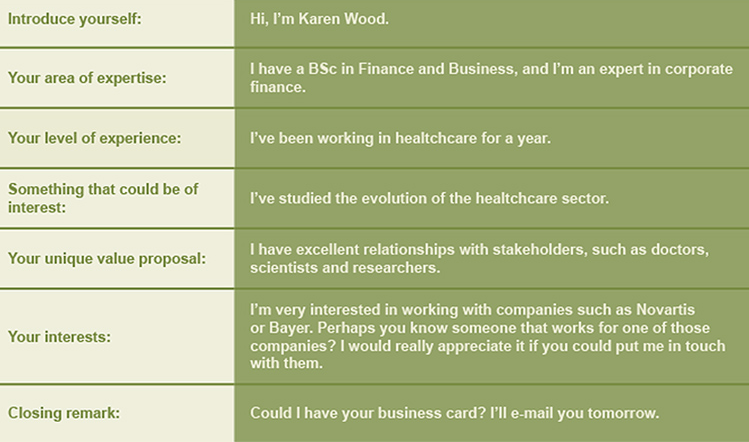Networking can have a significant impact on a career. Here we share some insights from our Professional Refresher module on the topic
by Bethan Rees
"Networking is the art of creating and nurturing meaningful, professional and mutually beneficial relationships" according to our Professional Refresher module on
the subject. However, the very idea of networking can scare people away. Like any other skill, it needs to be worked upon and nurtured. The module takes us through the important steps of networking and how to overcome obstacles.

The benefits of networking
A strong network can help you achieve a variety of objectives, the module says, including:
- being more efficient day-to-day
- figuring out future priorities and challenges
- getting a promotion
- finding another job
- reaching professional goals, such as meeting sales targets
- increasing personal and professional development.
"It is important to understand that networking should be continuous and does not only come into play in times of need, such as when you are looking for a job," says the module. "No one
wants to receive a call from someone they have not heard from in years and to be immediately greeted with 'I need to ask you a favour'."
Obstacles and challenges
You might think you're not cut out for networking for a multitude of reasons. The module gives a few instances of this, for example, you might not think that you have any contacts. To counter this, it says: "Everybody has contacts.
Even if you only have one or two, you have a starting point. Make a list of all the people you know – from school, university, neighbours, friends, and even your parents. Before you know it, you will have a longer list than you could have imagined,
and it will only keep growing from there."
What if you're a shy individual? "You can learn how to master the art of starting conversations. As a result, some of the people that you encounter in your day-to-day life will no longer be strangers," the module explains.
You may think that extroverts are naturally more equipped to network, but this doesn't have to be the case. "If you prefer small, intimate gatherings, with just two or three people, as opposed to big events or parties, you are not alone …
You can start with small and supportive environments," says the module.
Knowing how to introduce yourself will help you in any networking situation. The module suggests preparing an 'elevator pitch', which is defined as "a persuasive speech about you and your goals that help you feel comfortable and relaxed
in networking situations". Using this tool of communicating can help you make a connection and express who you are, what you do, and what you can offer to someone.
Elevator pitch example
Goal: Karen has worked in healthcare for a year, but she now wants a new job working in the pharmaceutical sector.
Situation: Karen's uncle is introducing her to an executive who works in the pharmaceutical sector. Her elevator pitch could be as follows:

The right event
If you haven't networked before, the module advises attending as many events as possible so you can define what it is you enjoy and find useful. You can use these criteria to select events, it states:
- Do you enjoy this type of event (eg, dinner or a conference)?
- Will there be people you are interested in meeting?
- Will there be people you enjoy spending time with?
- Is the amount of time or money required worth your while?
- Have you had good experiences with this type of event in the past?
There are a variety of places you can look for events too, whether that's event websites, your alumni network, professional associations or sector groups.
Social networking
Social networks can be a good place to increase your pool of connections and sector knowledge. "It is common these days for your first contact with a new customer, client or colleague to be over the internet. Online
contact can also stop relationships with people you might not get the chance to see in person very often from going cold," the module says.
It also has a few tips to make your online brand the most effective it can be. These include:
- Deactivating old or dormant social media accounts, Googling yourself and removing unprofessional content, activating privacy settings, untagging yourself in undesirable pictures.
- Selecting your preferred social media networks with care. Are they used by your target audience?
- Keeping your social media up to date, fresh and maintained without flooding your followers with too much content.
- Keeping your brand and message consistent between platforms.
- Managing how you establish contact on an individual basis. Making the first contact through LinkedIn establishes a professional tone, allowing you to direct them to other platforms as you see fit. It is also a good idea to remind the person where
and when you met, as this might not be obvious at first.
Asking for help
As mentioned, networking can help you in many ways, including finding a new job or reaching professional goals. But you have to be aware that networking does require some work on the individual's side. The module refers to Wayne Baker, author of All you have to do is ask: how to master the most important skill for success,
who explains that we rarely get what we need or want without asking for it.
The best way to ask for help is knowing exactly what it is you want/need and how that can happen. The module gives this template as an example:
"One of my biggest challenges in my life is to _________________ , and I need advice on ____________________."
It continues: "Fill in the blanks and you will go a long way towards figuring out what you are trying to achieve. It helps you to prioritise and identify what kind of resources you need."
Giving back to your network
Networking is a two-way street – it's not just about what you can gain from others, it's also about what you can offer them. Think about what skills, contacts and information you have that might be valuable to someone else. For example,
this might be giving referrals to potential customers or employers, giving honest feedback, or sharing information through books/articles/websites.
Have you found networking beneficial? Leave your comments below.